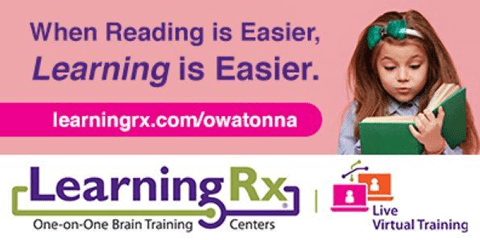What Does Research Say About Working Memory and Reading Struggles?
When looking at the impact of working memory (WM) on reading, the research is direct. The key role WM has on reading performance is because tasks entail using both information processing and storage synchronously (Bergman Nutley & Söderqvist, 2017). Think of it as if someone wanted to understand the text, she must first visually process the words; after which she matches the words to the phonological, semantic, and orthographic depictions in long-term memory (LTM); and ending with the combination of these depictions within the framework to develop what is the meaning of the passage. van den Broek et al. (2016) posit that the aim of WM is to be involved in this process of understanding by allowing short-term memory (STM) to retain relevant information, having information from long-term memory (LTM) retrieved, and combining all the sources of information to form an accurate understanding based off what was described by the text. Regarding van den Broek’s position to children reading a text, they should be able to remember information previously taught and then add the information received to their knowledge bank as they proceed in becoming an effective reader.
Additional studies have shown that children with reading difficulties are known to often exhibit problems retrieving stored vocabulary knowledge from the mental lexicon (Dickens, 2017; Dosi & Koutsipetsidou, 2019; Rucklidge & Tannock, 2002) which could mean that WM tests may show a specific problem in word finding. This is important, as vocabulary is a strong predictor of later reading and literacy ability (Oakhill et al., 2019). It can be noticed in the preschool years that children with larger vocabularies have more developed phonological awareness (Lonigan et al., 2018; McBride-Chang et al., 2005). Research has shown that vocabulary is also critical in oral reading instruction (National Institute of Child Health and Human Development, 2006). Furthermore, a meta-analysis of studies has shown that some phonological awareness abilities like phoneme deletion are impacted by WM capacity because they require both storage and manipulation of phonemes (Peng et al., 2018).
What you can do to help your struggling child
At LearningRx, we know that strong cognitive skills are foundational for reading success. That is why we recommend that when parents first contact us about their struggling reader, they take our free brain quiz and our cognitive skills assessment. This gives us a thorough idea of which cognitive skills are strong and which need strengthening and are contributing to the current reading challenges, a launching point from which we can propose a customized brain training program that targets their child’s specific needs.
We have more than three decades of experience helping children and adults who struggle with reading and/or dyslexia and we have watched our students achieve huge gains!
Our clients consistently improve their auditory processing, long-term memory, and broad attention skills, all of which make reading easier. In fact, in a study we performed with 2,112 of our clients who were struggling with reading and dyslexia, auditory processing skills improved an average of 5.3 years and overall cognitive skills performance improved over 3.6 years—a testament to the brain’s ability to learn and grow.
If your child is struggling with reading at any age or in any grade, cognitive skills training at LearningRx could help! Contact us to learn more!
References
Bergman Nutley, S., & Söderqvist, S. (2017). How is working memory training likely to influence academic performance? Current evidence and methodological considerations. Frontiers in Psychology, 8, 69. 10.3389/fpsyg.2017.00069
Dickins, J. (2017). Phonological processing during silent reading in children with and without dyslexia (Doctoral dissertation, University of Southampton) https://eprints.soton.ac.uk/415941/1/PhD_Thesis_Dickins.pdf
Dosi, I., & Koutsipetsidou, E. C. (2019). Measuring linguistic and cognitive abilities by means of a sentence repetition task in children with developmental dyslexia and developmental language disorder. European Journal of Research in Social Sciences Vol, 7(4). http://www.idpublications.org/wp-content/uploads/2019/05/Full-Paper-MEASURING-LINGUISTIC-AND-COGNITIVE-ABILITIES-BY-MEANS-OF-A-SENTENCE-REPETITION-TASK-IN-CHILDREN.pdf
Lonigan, C. J., Burgess, S. R., & Schatschneider, C. (2018). Examining the simple view of reading with elementary school children: Still simple after all these years. Remedial and Special Education, 39(5), 260-273. 10.1177/0741932518764833
McBride-Chang, C., Cho, J. R., Liu, H., Wagner, R. K., Shu, H., Zhou, A., … & Muse, A.(2005). Changing models across cultures: Associations of phonological awareness and morphological structure awareness with vocabulary and word recognition in second graders from Beijing, Hong Kong, Korea, and the United States. Journal of experimental child psychology, 92(2), 140-160. Retrieved November 3, 2020 from http://citeseerx.ist.psu.edu/viewdoc/download?doi=10.1.1.714.3017&rep=rep1&type=pdf
National Reading Panel (US), National Institute of Child Health, & Human Development (US). (2000). Teaching children to read: An evidence-based assessment of the scientific research literature on reading and its implications for reading instruction: Reports of the subgroups. National Institute of Child Health and Human Development, National Institutes of Health. Retrieved May 15, 2020 from https://www.nichd.nih.gov/sites/default/files/publications/pubs/nrp/Documents/report.pdf
Oakhill, J., Cain, K., & Elbro, C. (2019). Reading comprehension and reading comprehension difficulties. In Reading Development and Difficulties (pp. 83-115). 10.1007/978-3-030-26550-2_5
Peng, P., & Kievit, R. A. (2020). The development of academic achievement and cognitive abilities: A bidirectional perspective. Child Development Perspectives, 14(1), 15-20. 10.1111/cdep.12352
Rucklidge, J. J., & Tannock, R. (2002). Neuropsychological profiles of adolescents with
ADHD: Effects of reading difficulties and gender. Journal of child psychology and psychiatry, 43(8), 988-1003. 10.1111/1469-7610.00227
van den Broek, P., Mouw, J. M., & Kraal, A. (2016). Individual differences in reading comprehension. Handbook of individual differences in reading: Reader, text, and context, 138-150. 10.4324/9780203075562













